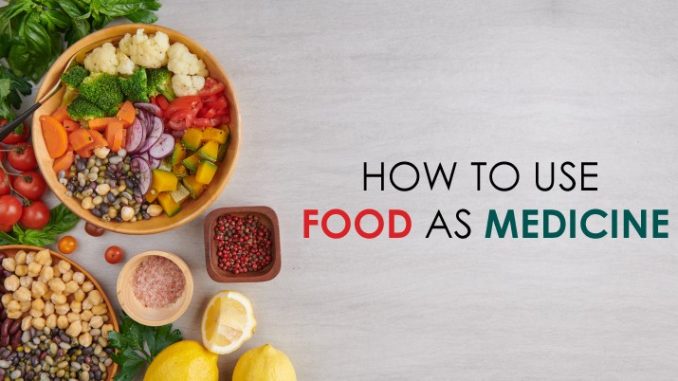
The idea that food can serve as medicine is not new. For centuries, cultures around the world have understood the healing power of what we eat. Yet in today’s fast-paced environment, where convenience often trumps quality, this perspective is easily forgotten. We tend to look to medication or quick fixes when health issues arise, overlooking the daily choices that build the foundation for resilience and vitality. Using food as medicine does not mean rejecting modern healthcare but rather complementing it by recognizing that every meal is an opportunity to support the body’s ability to repair, defend, and thrive.
One of the most immediate ways food functions as medicine is by providing essential nutrients that keep systems running smoothly. Vitamins, minerals, antioxidants, and phytonutrients play direct roles in everything from cellular repair to immune defense. For instance, vitamin C from citrus fruits strengthens the immune system, while leafy greens provide magnesium that supports muscle and nerve function. Omega-3 fatty acids found in fish and flaxseeds reduce inflammation, protecting cardiovascular health and supporting brain function. When these nutrients are consumed consistently through whole foods, the body is better equipped to ward off illness and maintain energy levels, much like a company investing steadily in maintenance to avoid costly breakdowns later.
Food also plays a powerful role in reducing inflammation, which is increasingly recognized as a root cause of many chronic diseases, including heart disease, diabetes, and certain cancers. Highly processed foods, refined sugars, and trans fats can fuel inflammatory responses, while nutrient-rich foods like berries, nuts, olive oil, and vegetables calm them. Choosing meals that prioritize anti-inflammatory ingredients does more than alleviate immediate discomfort; it lowers long-term risk of serious illness. This is why Mediterranean-style diets, rich in whole foods and healthy fats, are so often linked with longevity. By shaping daily eating patterns around foods that soothe rather than stress the body, you create conditions for lasting health.
Digestive health is another area where food clearly acts as medicine. The gut is home to trillions of bacteria that influence not only digestion but also immune function, mood, and metabolism. Feeding this microbiome with fiber-rich foods like fruits, vegetables, and whole grains fosters a balance of beneficial bacteria, which in turn helps regulate everything from inflammation to mental clarity. Conversely, diets low in fiber and high in processed ingredients disrupt this balance, leading to issues ranging from bloating to weakened immunity. Fermented foods such as yogurt, sauerkraut, and kimchi further enhance gut health by introducing probiotics, reinforcing the body’s defenses from within. Supporting the gut through mindful eating habits is essentially fortifying the command center of health.
The role of food extends to mental and emotional well-being as well. Certain nutrients influence neurotransmitters that regulate mood and cognition. Complex carbohydrates help maintain steady serotonin levels, while protein-rich foods provide amino acids like tryptophan and tyrosine that are precursors for dopamine and serotonin. Deficiencies in these nutrients can contribute to brain fog, anxiety, or low mood, while consistent nourishment helps stabilize emotions and sharpen focus. For professionals navigating high-stakes environments, this connection between food and mental clarity can be transformative. A lunch rich in whole grains, vegetables, and protein fuels afternoon productivity in a way that a fast-food option simply cannot.
Hydration also deserves recognition as part of food-as-medicine thinking. Water is essential for nearly every function in the body, from circulation to temperature regulation. Even mild dehydration can impair concentration, slow digestion, and increase fatigue. Foods with high water content—like cucumbers, melons, and leafy greens—contribute to hydration just as much as beverages. By incorporating these into meals, you not only stay hydrated but also deliver vitamins and minerals in tandem. This dual role exemplifies how food supports health in ways that extend beyond basic fuel.
Importantly, using food as medicine does not mean striving for perfection or following strict rules. It means shifting the focus from restriction to nourishment. Too often, people frame eating in terms of what they should avoid, creating guilt and rigidity. A more sustainable perspective emphasizes abundance—the idea of filling the plate with colorful, nutrient-dense options that crowd out less supportive foods. This approach is empowering because it centers on what can be enjoyed rather than what must be eliminated. It also makes healthy eating more practical in the long term, allowing for flexibility and balance.
There is also a preventive dimension to using food as medicine. By consistently choosing supportive foods, you reduce the likelihood of developing chronic conditions that require intensive medical treatment. For example, maintaining a diet rich in fiber, healthy fats, and lean proteins helps regulate blood sugar, lowering the risk of type 2 diabetes. Similarly, foods high in antioxidants and phytochemicals protect cells from damage that can lead to cancer. Prevention through food is not about avoiding medical care but about reducing the burden on the body so that medical interventions, when needed, are more effective.
Ultimately, embracing food as medicine is about seeing meals as more than a means to satisfy hunger. Each choice becomes an investment in health, energy, and longevity. It is about aligning daily habits with the understanding that food has the power to heal, energize, and protect. For professionals, this perspective reframes eating from a rushed, background activity into a strategic decision that directly affects performance and long-term success. By choosing foods that nourish rather than deplete, you create a foundation of resilience that supports not only your body but also your capacity to excel in every area of life.
In this way, food becomes more than sustenance—it becomes a tool, a strategy, and ultimately, a form of medicine that is always within your control.